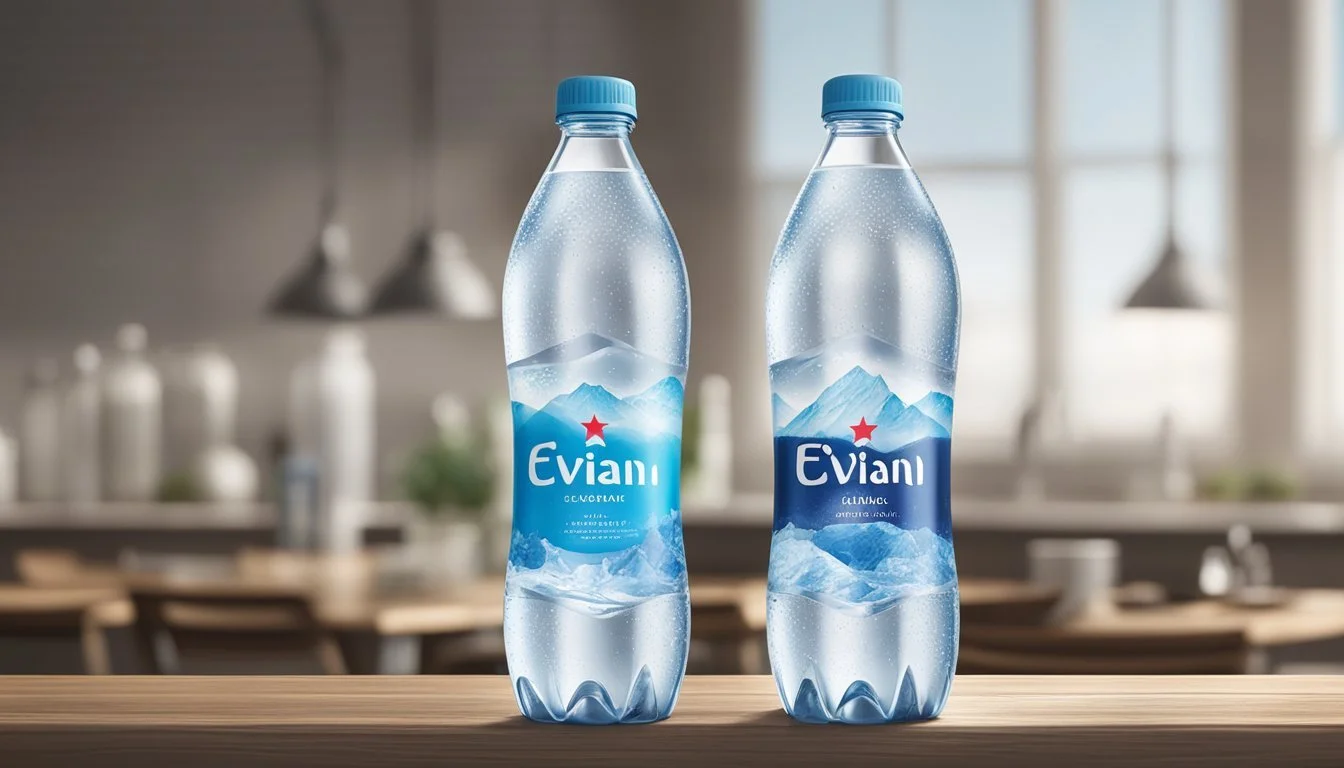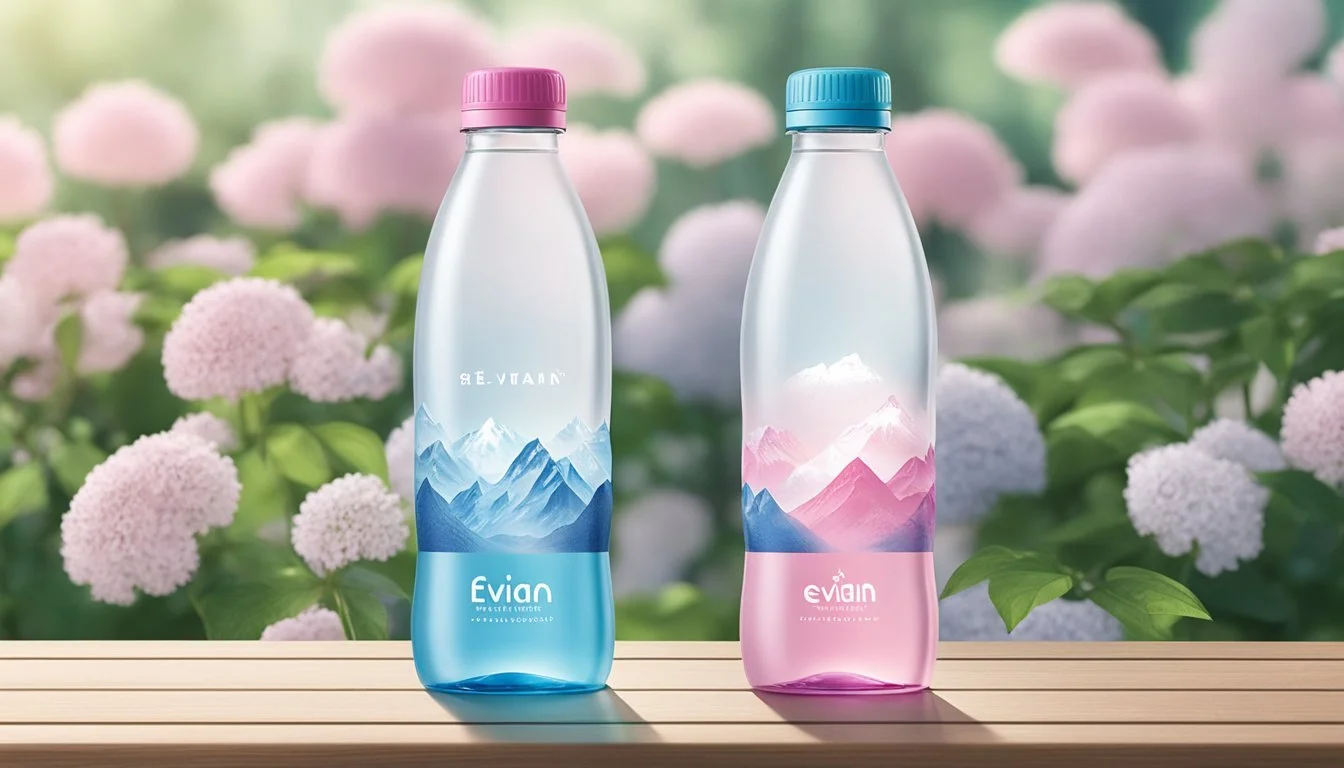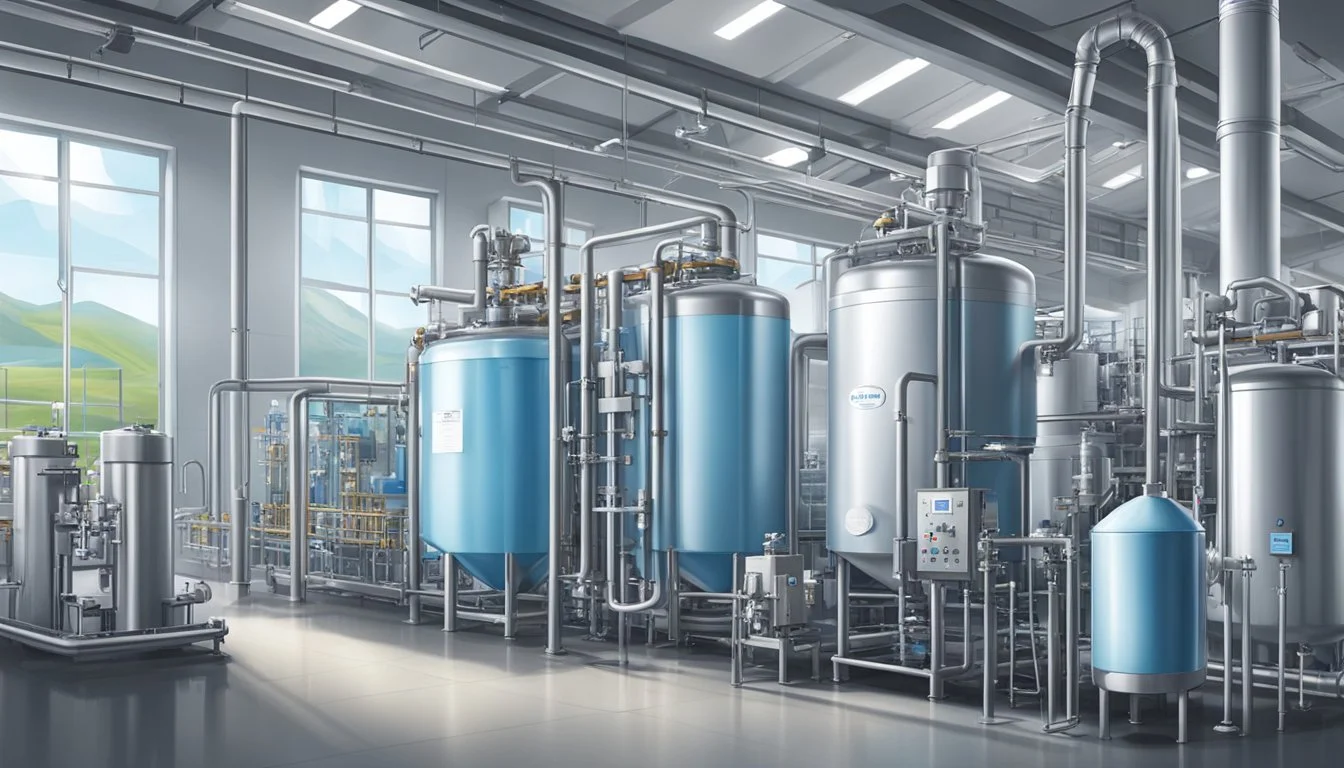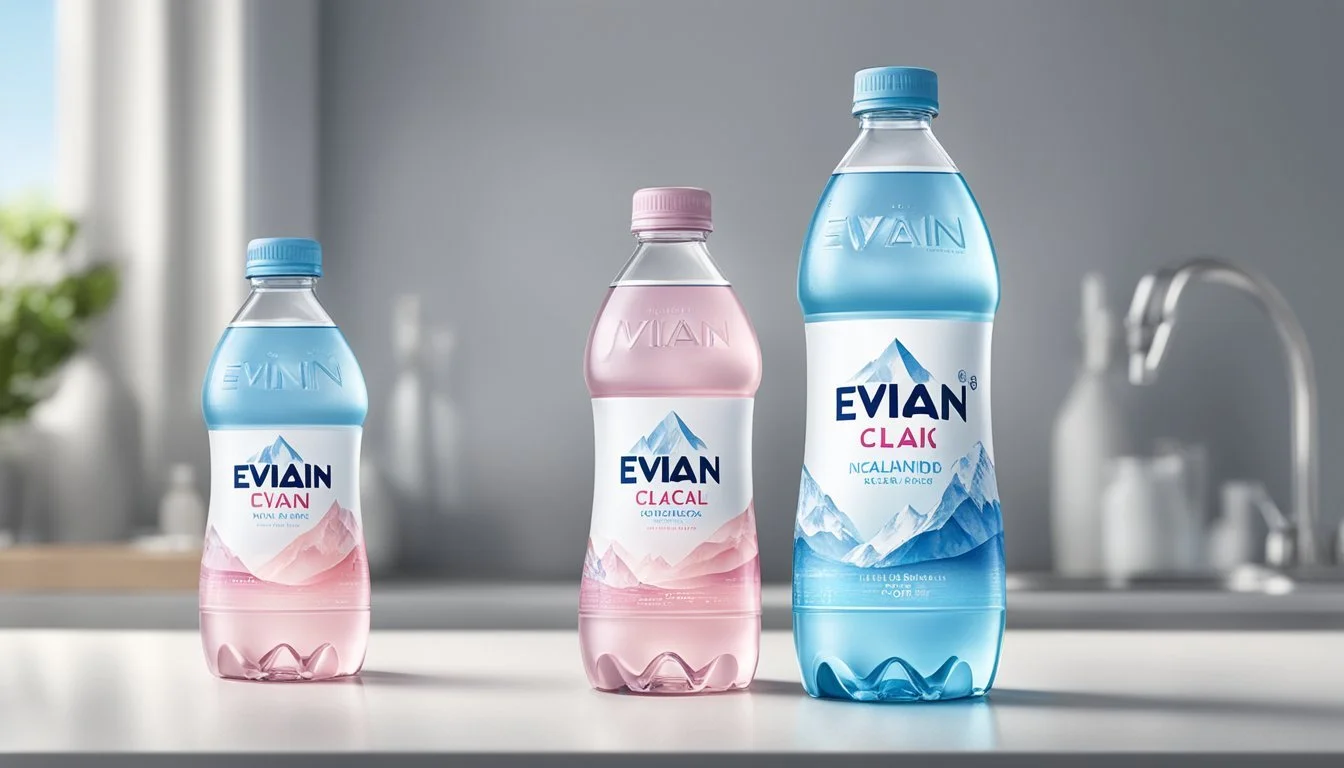Evian vs. Icelandic Glacial
A Comparative Analysis of Bottled Water Quality
When comparing bottled water brands, Evian and Icelandic Glacial often come to the forefront due to their reputation for purity and taste. Evian, sourced from the French Alps, is known for its mineral-rich composition and a presence that has been deemed synonymous with luxury in the world of hydration. Its water carries a neutral pH, typically reported at 7.2, indicating its natural balance between acidity and alkalinity.
Icelandic Glacial, on the other hand, claims its fame through an exceptionally high, naturally occurring pH level of 8.4. This water is sourced from the Olfus Spring in Iceland, a region renowned for its pristine environment and stringent quality standards. Its high pH suggests that it is more alkaline compared to many other brands, which some consumers find desirable for purported health benefits.
Choosing between Evian and Icelandic Glacial may come down to individual preferences in taste, the perceived health benefits of higher alkalinity, or the commitment of either brand to environmental sustainability. Each brand positions itself as offering a unique consumption experience, leveraging both the natural qualities of their waters and the broader values they represent in terms of purity and ecological impact.
Brand Overview and History
In examining Evian and Icelandic Glacial, one notices that distinct geographies have shaped the essence of these brands. Each represents a commitment to purity with a rich history rooted in their unique natural sources.
Evian: From the French Alps
Evian began its journey over 200 years ago in the town of Évian-les-Bains on the southern shore of Lake Geneva. The water rises naturally from the Source Cachat, flowing from the French Alps. Recognized for its balanced mineral content and a ph level that promotes neutrality, Evian water undergoes a 15-year journey before it reaches the surface, filtered through glacial sand that is naturally rich in electrolytes and minerals.
Founded: 1789
Source: French Alps, Source Cachat
Noteworthy Attributes:
Naturally filtered through glacial sand
Balanced mineral content and neutral pH level
Icelandic Glacial: Pure Arctic Origin
On the other hand, Icelandic Glacial is known for its extraction from the Ölfus Spring, one of the world's largest natural springs located on Iceland's southwest coast. The water from Icelandic Glacial boasts an exceptional purity and a crisp, clean taste which is attributed to the filtration through volcanic rock. Icelandic Glacial takes pride in their sustainable approach to bottling, being one of the first brands to receive CarbonNeutral certification.
Founded: 2004
Source: Ölfus Spring, Iceland
Noteworthy Attributes:
Natural filtration through volcanic rock
CarbonNeutral certified company
Each brand's history is a testament to their dedication to providing premium bottled water, with emphasis on sustainability and natural sourcing.
Source and Natural Purity
When comparing Evian and Icelandic Glacial, the natural purity of the water emerges from their unique sources and filtration processes. Each brand's source contributes distinct mineral profiles and purity levels that cater to different palates and preferences.
Evian's Protected Aquifer
Evian draws its water from a protected aquifer within the French Alps. Sheltered beneath layers of glacial sand, the aquifer is replenished by snow and rain filtering down from the mountains. This natural process ensures the water is rich in beneficial minerals such as calcium and magnesium. The aquifer's unique geological setting lends Evian its pristine quality and taste, which has been preserved and monitored for over 15 years.
Icelandic Glacial: Lava Rock Filtration
In contrast, Icelandic Glacial sources its water from the famous Olfus Spring in Iceland, renowned for its exceptionally clean and low-mineral content spring water. The water is naturally filtered through ancient lava rock, which provides a form of natural filtration unparalleled by man-made processes. This contributes to its claim of having a naturally high pH level, creating a smooth and refreshing taste with minimal minerality.
Water Quality and Composition
In comparing the water quality and composition of Evian and Icelandic Glacial, attention is drawn to the distinct mineral profiles and pH levels that differentiate these two bottled waters.
Minerals and Electrolytes Content
Evian water originates from a glacial spring in France and contains a balance of minerals and electrolytes that are beneficial for hydration. Notably, it includes calcium, which is crucial for bone health, and magnesium, important for muscle function.
Calcium: Approximately 80 milligrams per liter.
Magnesium: Around 26 milligrams per liter.
Fluoride: Present in minimal amounts, generally considered safe and beneficial for dental health.
Icelandic Glacial, on the other hand, touts a journey through volcanic rock which enriches it with a unique mineral blend.
Calcium: Varies, but is typically present in lower quantities than Evian.
Magnesium: Similar to Evian, present in beneficial quantities.
Fluoride: Naturally occurring in trace amounts, contributing to its distinctive composition.
pH Level and Alkalinity
The pH level is a measure of how acidic or alkaline water is. Evian has a pH level of 7.2, which is slightly more alkaline than pure water, indicating a balance that is often preferred for everyday consumption.
Icelandic Glacial boasts an alkaline pH level of 8.4, making it one of the more alkaline options on the market due to its passage through Iceland's volcanic underground.
Evian: pH 7.2
Icelandic Glacial: pH 8.4
The higher pH level of Icelandic Glacial indicates that it may have a buffering capacity to neutralize acidity, a feature that some consumers seek for purported health benefits.
Taste and Texture Comparison
When it comes to bottled water, taste and texture are often the deciding factors for consumers. Evian and Icelandic Glacial are both renowned for their unique qualities. Evian, a natural spring water, is sourced from the French Alps and is venerated for its clean, smooth taste accompanied by subtle mineral notes. Its natural filtration process through glacial sand endows it with a well-balanced mineral composition that is not only refreshing but also contributes to a soft, silky mouthfeel.
Icelandic Glacial, contrastingly, is a natural water sourced from the Ölfus Spring in Iceland, where it is filtered through lava rock. This natural filtration bestows the water with a distinct taste profile, which is described as pure and crisp. Icelandic Glacial is also recognized for being naturally alkaline.
The following table summarizes the characteristics of each water in terms of taste and texture:
Aspect Evian Icelandic Glacial Source French Alps Ölfus Spring, Iceland Taste Clean, smooth, subtle minerals Pure, crisp, natural alkaline Texture Soft, silky Crisp Mineral Content Balanced Naturally alkaline Sparkling Option Available Not typically associated
Consumers who prefer a touch of sparkling effervescence may opt for Evian's carbonated offerings, while those who favor a still water experience with an alkaline pH might lean toward Icelandic Glacial. Each brand delivers a different sensory experience that adheres to the high standards of purity and quality expected from premium bottled waters.
Health and Hydration Benefits
Both Evian and Icelandic Glacial bottled waters offer unique health and hydration benefits that are important to consider when choosing a source for daily water intake. They provide hydration and contain various minerals contributive to well-being.
Hydration for Wellness
Hydration is essential for overall wellness, affecting everything from organ function to cognitive performance. Evian Water is known for its balanced mineral composition, with a pH level of 7.2, which is beneficial for maintaining the body's natural equilibrium. However, Icelandic Glacial, boasting a naturally high pH level of 8.4, is alkaline, which can help balance the body's pH levels, especially in those with acidic diets. The minerals found in these waters, such as calcium and magnesium, play crucial roles in bone health and muscle function.
Minerals in Evian:
Calcium: Essential for strong bones
Magnesium: Aids muscle contraction and blood pressure regulation
Potassium: Important for nerve transmission and muscle health
Minerals in Icelandic Glacial:
Alkaline pH: Naturally occurring level of 8.4
Effects on Aging and Contaminants
Aging is a natural process that can be affected by various factors including the presence of contaminants. Both brands pride themselves on their sources, where the water is naturally filtered and contains no artificial sweeteners or preservatives, implying less exposure to potentially harmful contaminants. Evian originates from a glacial spring and undergoes a unique filtration process that preserves the purity and mineral content, which can be beneficial for health and possibly mitigate some effects of aging. Meanwhile, Icelandic Glacial is sourced from Iceland's legendary Ölfus Spring, yielding water that promises to be exceptionally clean with minimal exposure to contaminants.
Evian: Known for a filtration process devoid of chemicals
Icelandic Glacial: Harvested from a pristine spring with negligible contaminant levels
It is important to note that while high-quality bottled waters can play a role in a healthy lifestyle, they should be seen as part of an overall diet and exercise regimen.
Packaging and Sustainability
When comparing Evian and Icelandic Glacial bottled waters, it's important to consider their packaging options and sustainability efforts, which include materials used and environmental impacts.
Plastic vs. Glass Bottles
Evian provides their water in both plastic and glass bottles. The plastic bottles are made with recycled materials and are designed to be 100% recyclable. On the other hand, Icelandic Glacial offers water in plastic bottles as well as in glass options for certain markets. Both companies utilize bottles that are designed to minimize the release of plastic particles and safeguard the product's purity.
Plastic: Both Evian and Icelandic Glacial use BPA-free plastic.
Glass: Evian's glass bottles are targeted at high-end markets emphasizing quality and sustainability.
Eco-Friendly Practices and Carbon Neutrality
Evian has achieved carbon neutrality through a series of eco-friendly practices and partners with the Carbon Trust to maintain this status. Their commitment includes the reduction of carbon emissions in all business operations.
Icelandic Glacial, meanwhile, markets itself as the world's first carbon-neutral bottled water. This status is verified by the Environmental Protection Agency (EPA) and is the result of offsets and sustainable practices, such as efficient water sourcing that flows directly from the spring to the bottling plant without the need for transport.
Sustainability Initiatives:
Evian: Implementing renewable energy, protection of the water source, and eco-design of packaging materials.
Icelandic Glacial: Use of 100% recyclable materials and a pledge to incorporate 50% post-consumer recycled plastic by 2021.
Safety, Filtration, and Bottling Processes
In the domain of bottled water, Evian and Icelandic Glacial stand out for their distinct filtration and bottling methods. These processes are critical for maintaining the purity and safety of the water consumers receive.
Filtration Techniques
Evian undergoes a natural filtration process. The water filters through glacial rocks in the French Alps over several years, providing a level of purification that does not require chemical intervention. The natural filtration process ensures a balanced mineral content and a final pH level of 7.2, which classifies it as neutral.
Icelandic Glacial, on the other hand, boasts an alkaline pH level of 8.4. Its high pH is a result of flowing through volcanic rock, which naturally enriches the water without the need for additional purification processes. Icelandic Glacial does not utilize reverse osmosis or other artificial purification methods due to the already high purity levels from the natural filtration process.
Bottling at the Source
Both brands take pride in bottling their water directly at the source to maintain integrity and quality.
Evian's bottling facility, close to the spring in Évian-les-Bains, ensures that the water is captured in its purest form. By bottling at the source, they aim to preserve the water's natural composition and taste.
Icelandic Glacial's water is also bottled at the source from the Ölfus Spring, one of the world's largest natural springs. The company's commitment to sustainability is reflected in its bottling practices, which utilize renewable energy sources such as geothermal and hydroelectric power. They ensure that every bottle of Icelandic Glacial is an accurate representation of the spring's natural output.
Both companies are dedicated to delivering water that is not only safe to drink but also retains the unique properties of their respective sources. Through stringent safety protocols and sophisticated bottling processes, they strive to provide consumers with high-quality bottled water.
Market Presence and Consumer Preference
When assessing the market presence and consumer preference between Evian and Icelandic Glacial, it's important to consider the accessibility and visibility of both brands, as well as their achievements in the realm of awards and certifications.
Brand Popularity and Availability
Evian is renowned for its source in the French Alps and easily recognizable by its iconic tear-shaped bottle. It is distributed widely across the globe and can often be found in supermarkets, specialty stores, and restaurants. The brand has established a robust market presence, capitalizing on its heritage and image of luxury.
Global Distribution: Extensive
Recognizability: High
Icelandic Glacial, hailing from the Ölfus Spring in Iceland, touts an image of purity and environmental responsibility. It has a growing presence in international markets, focused on sustainability.
Global Distribution: Growing
Recognizability: Moderate
Awards and Certifications
Both Evian and Icelandic Glacial are notable in their individual achievements, which contribute to their market presence and inform consumer preference.
Evian:
Awards: Not frequently awarded in comparison to other popular brands.
Certifications: Meets high purity standards for spring water.
Icelandic Glacial:
Awards: Not specifically known for awards.
Certifications: CarbonNeutral® product certification; emphasizes eco-friendly practices.
The popular brands of bottled water often display their safety standards, certifications, and any awards as a testament to their quality and commitment to consumer health and the environment. Consumers' preference may thus be influenced by these benchmarks as they seek out both purity in their water and a brand that aligns with their values.
Final Assessment and Preference
In this section, readers will find a concise evaluation based on a comparative taste test and an overall brand assessment of Evian and Icelandic Glacial bottled waters, two brands that have garnered attention for their quality and taste.
Comparative Taste Test
A blind taste test involving several notable brands such as Fiji, Voss, San Pellegrino, and Nestlé Pure Life highlighted the distinct profiles of Evian and Icelandic Glacial. Participants described Evian's taste as crisp and refreshing with a neutral pH of 7.2, a quality shared with Nestlé's Poland Spring. Icelandic Glacial stood out with its higher alkaline pH level of 8.4, imparting a smoother taste, often preferred by those who favor an alkaline diet, similarly found in brands like Essentia.
Overall Brand Evaluation
When examining the broader brand aspects, Icelandic Glacial touts its environmental certifications, appealing to eco-conscious consumers. Comparable brands, like LIFEWTR and Smartwater, also emphasize eco-friendliness in their marketing. Evian, on the other hand, offers a balanced mineral content and commitment to sustainability that rivals brands like Voss. Both Evian and Icelandic Glacial maintain strong market positions, with Icelandic Glacial being praised for its purity and Evian for its long-standing reputation and widespread availability, which is reflective of more accessible brands like Dasani and Aquafina.
Conclusion
When comparing Evian and Icelandic Glacial bottled waters, several factors come to the forefront to determine which might be the better option.
Source and Purity:
Evian water originates from a glacial spring where it is naturally filtered, boasting a neutral pH level of 7.2. On the other hand, Icelandic Glacial has an edge with its high, naturally occurring pH level of 8.4, thus classifying it as alkaline, and it promises exceptionally clean water.
Environmental Impact:
Both brands are committed to sustainability, with Icelandic Glacial using 100% renewable energy in its production and Evian aiming to become a circular brand by 2025 by using 100% recycled plastic.
Taste and Accessibility:
The taste is subjective, but consumers often describe Icelandic Glacial as rich and refreshing. Despite this, it may be more challenging to find in stores compared to Evian, widely available globally.
Price Point:
The price of Icelandic Glacial water can vary, but Evian is generally considered to be in the premium price range as well.
In summary:
Evian provides naturally pure water with a neutral pH.
Icelandic Glacial advantages include a higher pH level and a strong environmental commitment.
Accessibility favors Evian, while those preferring an alkaline water might lean towards Icelandic Glacial.
Whichever brand one prefers may depend on individual values, such as taste preference, environmental concerns, and accessibility.









